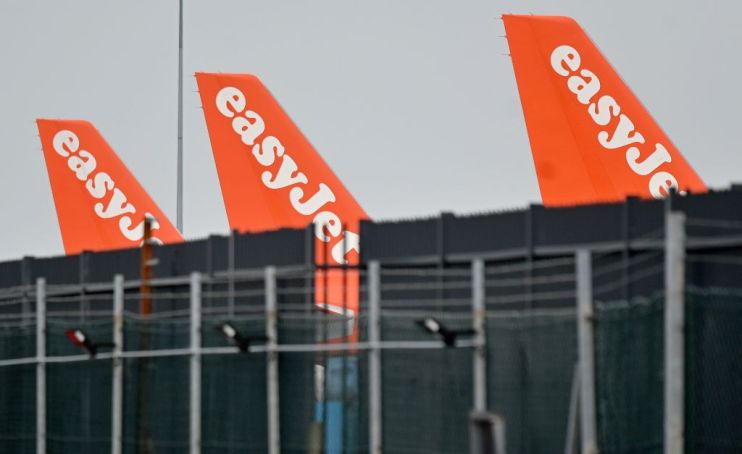Easyjet chief: We will keep flying to quarantined countries if there is demand

Easyjet’s chief executive Johan Lundgren has said that the airline will not stop flying to destinations if the government chooses to reimpose quarantine restrictions on them while demand to travel to them remains.
Speaking to City A.M., he said: “People, as we have seen with Portugal for example, are willing to take the sacrifice of quarantine in order to fly.
“We will fly when we see that there is a demand to go there. If restrictions mean that you have to quarantine then it is up for the individual customers to decide whether they want to make that sacrifice or not.”
His comments came after the airline said it was preparing to expand its flight schedule over the summer to cater for higher than expected demand.
The company’s share price soared more than 10 per cent this morning after it said it will fly at around 40 per cent of capacity over the summer following “better than expected” bookings. Previously it had planned to fly at 30 per cent of capacity.
The statement of intent came despite the government’s decision to impose mandatory 14-day restrictions on those returning from Spain after a surge in cases.
However, Lundgren said that the measures had only had a limited impact on Easyjet’s flights, the number of which it did not reduce after the government’s decision.
“When looking at Spain, when the quarantine came in there was an immediate decline in new bookings, but there were not a lot of cancellations”, he said.
Subsequently, the government has put similar measures in place for Luxembourg, and has not ruled out doing so for other countries.
‘Lack of clarity’ on quarantine basis
Lundgren criticised the restrictions, questioning the basis on which they had been brought in.
“If there’s a lack of clarity, which there is, about why quarantine is being introduced on basis of medical evidence, it means that it will be tremendously difficult to work out when you also can remove it”, he told City A.M. .
“If you don’t know when you put it in under what basis you did so, how do you then know when it’s the right time to remove it?”, he asked.
In June Easyjet put aside its long-running rivalries with fellow carriers Ryanair and British Airways to launch a legal challenge against the government’s quarantine policy.
Although the case has been subsequently dropped, one of the arguments the carriers had proffered was that quarantine was put in place without any consultation or scientific evidence.
Lawyers had said the government would have had to show the scientific evidence that underpinned the need for a quarantine if judges allow a judicial review to go ahead.
Lundgren said that he and his fellow airline chiefs were continuing to seek clarity from the government over the rules.
‘Still waiting’ for government plan
In this morning’s results, Easyjet called on the government again to cut air passenger duty to protect airlines, saying that not doing so risked damaging the sector’s long-term recovery.
Although back in March ministers said they were working on a specific package for UK aviation, they have subsequently been reluctant to single the sector out for bespoke help.
Chancellor Rishi Sunak has said that airlines can access the government’s Project Birch funding for strategically key firms, but insisted they use up all other means of raising funds first.
Lundgren said the lack of sector-specific help had left him worried that the UK would be left behind by European competitors such as Lufthansa and AIr France, which have received huge bailouts from their respective governments.
“These bailouts mean that you’re prolonging the life of companies which now have money available to the extent UK airlines don’t.
“This is troubling because it will distort, ultimately, the competition landscape. Easyjet went into this as one of the strongest airlines in Europe, and without the support that we would have seen that we’ve now seen elsewhere, I think it’s reasonable to assume that we would have had more opportunities going forward in certain areas”.
He said that the sector was “still waiting” for details of the government’s plan for the future of aviation, warning that the damage could get worse if it did not do so.